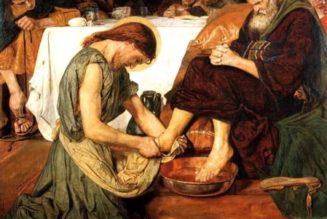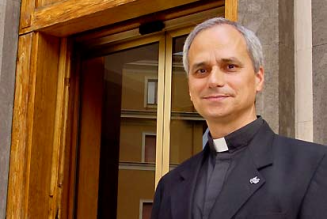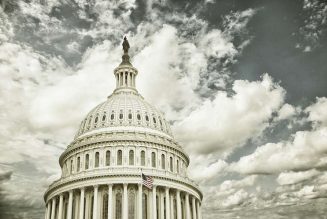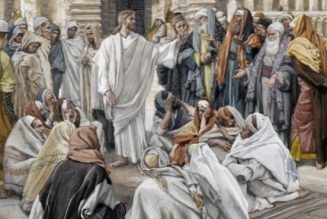By Phil Lawler ( bio – articles – email ) | Nov 28, 2022
Well that didn’t take long, did it? In October the Vatican renewed an accord with Beijing governing the appointment of new Chinese Catholic bishops. Barely over one month later, China violated the accord.
But wait. Was it actually a violation? Although a formal statement from the Holy See was strongly worded, it only expresses “surprise and regret” at the Chinese move, saying that it was not “in conformity with the spirit of dialogue” between Rome and Beijing. So that “spirit of dialogue” had been violated. But had the terms of the agreement?
We don’t know, because the terms of the Vatican-Beijing accord have never been disclosed. The common understanding is that the agreement governs the appointment of new bishops, supposedly giving the Holy See the final say. But in this case China did not name a new bishop. Instead the Communist leadership transferred a bishop—a bishop who was serving with the full approval of the Vatican—to a new diocese—a diocese that the Vatican does not recognize.
So technically, perhaps China did not break the terms of the agreement. An unnamed Vatican official seemed to acknowledge as much in a statement quoted by the Catholic News Agency:
We are talking about the spirit of the agreement, not about the deal itself. But it is a spirit that speaks of mutual trust and dialogue, which for the Holy See was broken by Beijing with its unilateral decision.
Notice again the emphasis on the spirit of the accord, and in particular on “dialogue.” Even in the statement decrying the Chinese move the Vatican “reaffirms its complete willingness to continue the respectful dialogue concerning all of the matters of common interest.”
What’s wrong with this picture? One side is committed to trust and dialogue, while the other is committed to gaining control of an autonomous Chinese Catholic Church. Vatican spokesmen have doggedly defended the secret agreement, insisting that it opens up new prospects for unity within Chinese Catholicism. But the agreement has quite obviously not served the goal of providing new bishops acceptable to both Rome and Beijing. Since the deal was struck in 2018, only six new bishops have been appointed; forty Chinese dioceses remain without a bishop.
From Beijing’s perspective, the requirement that bishops have approval from Rome is a technicality; they are still expected to serve the Communist state. When Bishop Peng was installed, he was asked to take this oath:
I swear to keep the commandments of God, fulfill the pastoral duties of the auxiliary bishop, preach the Gospel faithfully, guide the priests and faithful of the Diocese of Jiangxi, abide by the national constitution, safeguard homeland unity and social harmony, love the country and religion, and persist in the principle of independent and self-managed churches, adhere to the leadership of the Catholicism of my country in China, actively guide Catholicism to adapt to socialist society and contribute to the realization of the Chinese dream of the great rejuvenation of the Chinese nation.
Those bishops who accept the leadership of the government-controlled Catholic Patriotic Association are acceptable to Beijing—and now, under the terms of the secret agreement, to Rome as well. Those who resist are still subject to harassment, arrest, and “re-education.” And even those who manage to strike the delicate balance between the conflicting authorities are constantly under pressure to serve the state.
Last week’s case was no exception. Bishop John Peng Weizhao accepted his curious new assignment, although it involved a step down—from leading his own (Nanchang) diocese to becoming an auxiliary in a diocese (Jiangxi) that, in the Vatican’s view, does not exist. But the Vatican indicated that the bishop had been under “long and heavy pressure from the local authorities” to accept this new role.
It is telling that when he was questioned about the Vatican’s angry statement, a spokesman for the Chinese foreign ministry said that he was not aware of the situation. Why would he be? Chinese religious authorities had only done what they have consistently said they intend to do: exert control over the Church and preside over the “Sinicization” of Catholicism. The Vatican has studiously avoided criticism of the Chinese regime on other grounds—most recently, downplaying the prosecution of Cardinal Joseph Zen. It may truly have surprised officials in Beijing that the Vatican would finally protest.
But the Chinese government spokesman assured reporters that his country is “willing to continuously expand the friendly consensus with the Vatican side and jointly maintain the spirit of our interim agreement.” That’s an interesting phrase: “expand the friendly consensus.” As things stand, the “consensus” evidently does not cover the most crucial question: Is the Church of China independent from the Church of Rome?
Sound Off! CatholicCulture.org supporters weigh in.
All comments are moderated. To lighten our editing burden, only current donors are allowed to Sound Off. If you are a current donor, log in to see the comment form; otherwise please support our work, and Sound Off!

Join Our Telegram Group : Salvation & Prosperity










